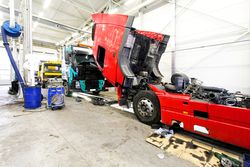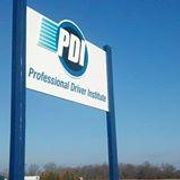4 Essential Preventative Maintenance Checks for Truckers

All vehicles require preventative maintenance for optimum safety and performance. But these checks are particularly crucial for commercial vehicles, which often get more wear and tear than the average commuter car. Here are four essential steps to a truck and trailer check.
Preventative Maintenance Checklist
1. Fluids
Check for fluid leaks on the pavement under the truck and make sure the coolant, antifreeze, oil, and fuel are leak-free and full. Also, turn on the ignition to examine the oil pressure, temperature, and air pressure to ensure they’re in working order. Keep the floor beneath the truck clean, so you can easily see when this issue occurs. Otherwise, you may miss a leak if the floor is covered in dirt and grime.
2. Brakes
 Check the parking and standard brakes to ensure there’s adequate lining, no leaks, and that the low-pressure warning system is operating properly. Also, make sure the parking brake turns on automatically. Inspect the stroke at each position, as well as the automatic slack adjusters, which wear out over time.
Check the parking and standard brakes to ensure there’s adequate lining, no leaks, and that the low-pressure warning system is operating properly. Also, make sure the parking brake turns on automatically. Inspect the stroke at each position, as well as the automatic slack adjusters, which wear out over time.
3. Tires
Tires require frequent maintenance, as they take the brunt of daily wear and tear. Inspect air pressure and tread at every preventative maintenance checkup. If the tread is worn beyond 4/32nds or 5/32nds of depth, replace them as soon as possible. Putting off these replacements increases the risk of a blowout, which could damage your vehicle and put your life at risk.
4. Electrical System & Wiring
Remove and clean the battery and connectors, and load test them. Also, check all the lights including headlights, flashers, turn signals, and warning, clearance, and brake lights. Inspect all other electrical components as well to ensure there are no damaged wires or connectors and everything is working as it should.
Professional Driver Institute in the Greater Rochester, NY, area is one of the country’s best truck driver training schools. Fully licensed and accredited since 1993, this institute provides students with all the tools they need to become professional drivers or diesel technicians. From preventative maintenance to long-haul driving, they offer a broad range of classes to prepare you for a career in diesel trucking. Call (585) 293-1203 to speak with a friendly staff member or visit the website to learn more about the programs.
About the Business
Have a question? Ask the experts!
Send your question

